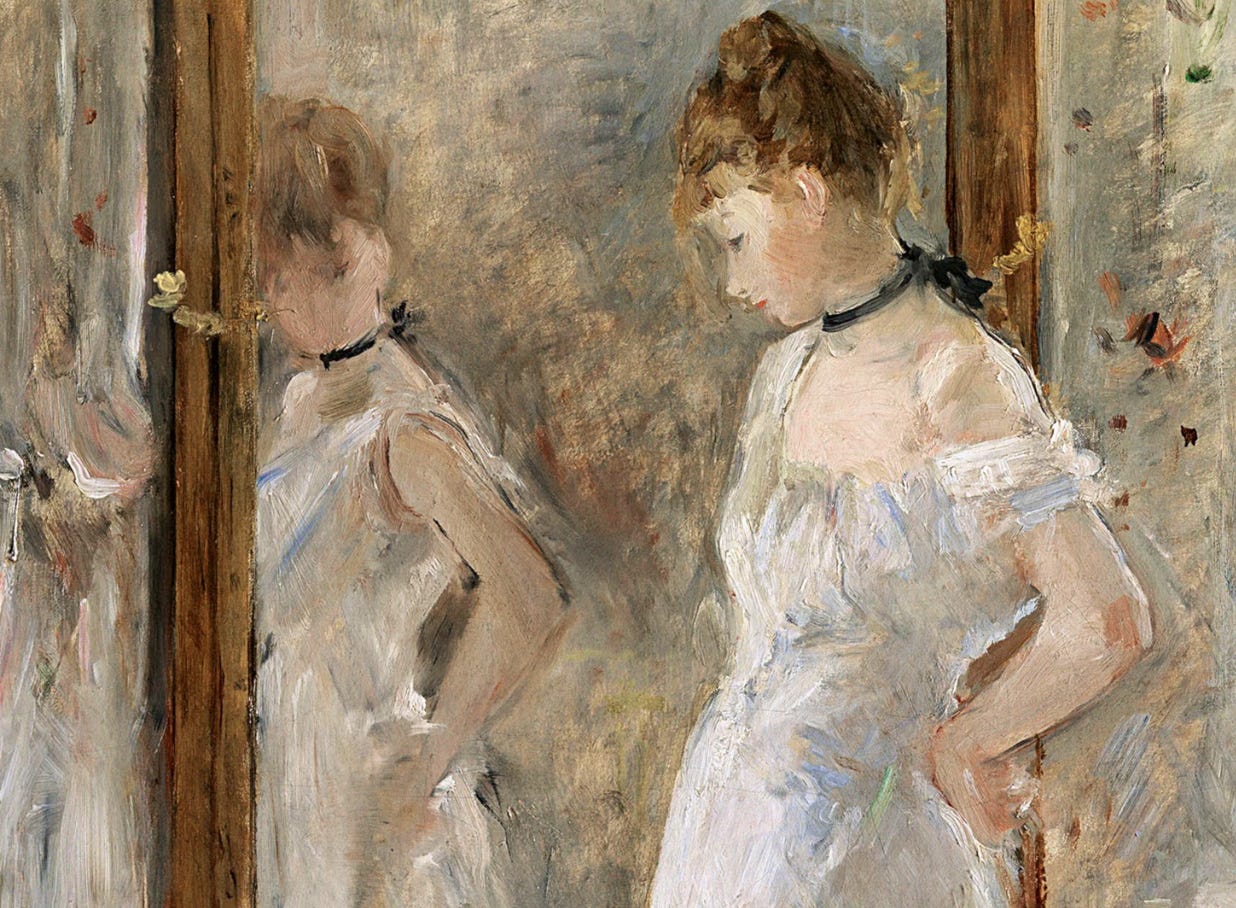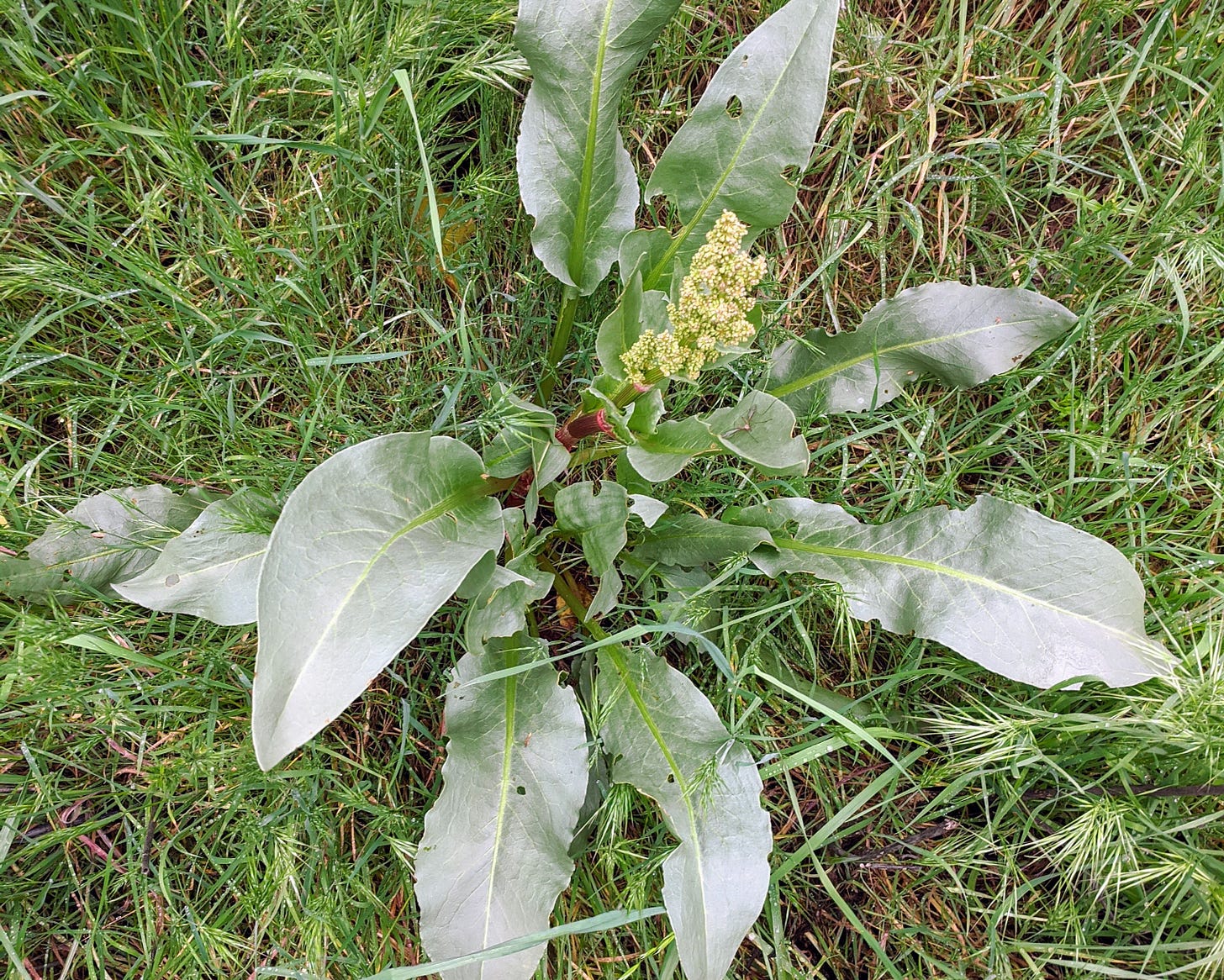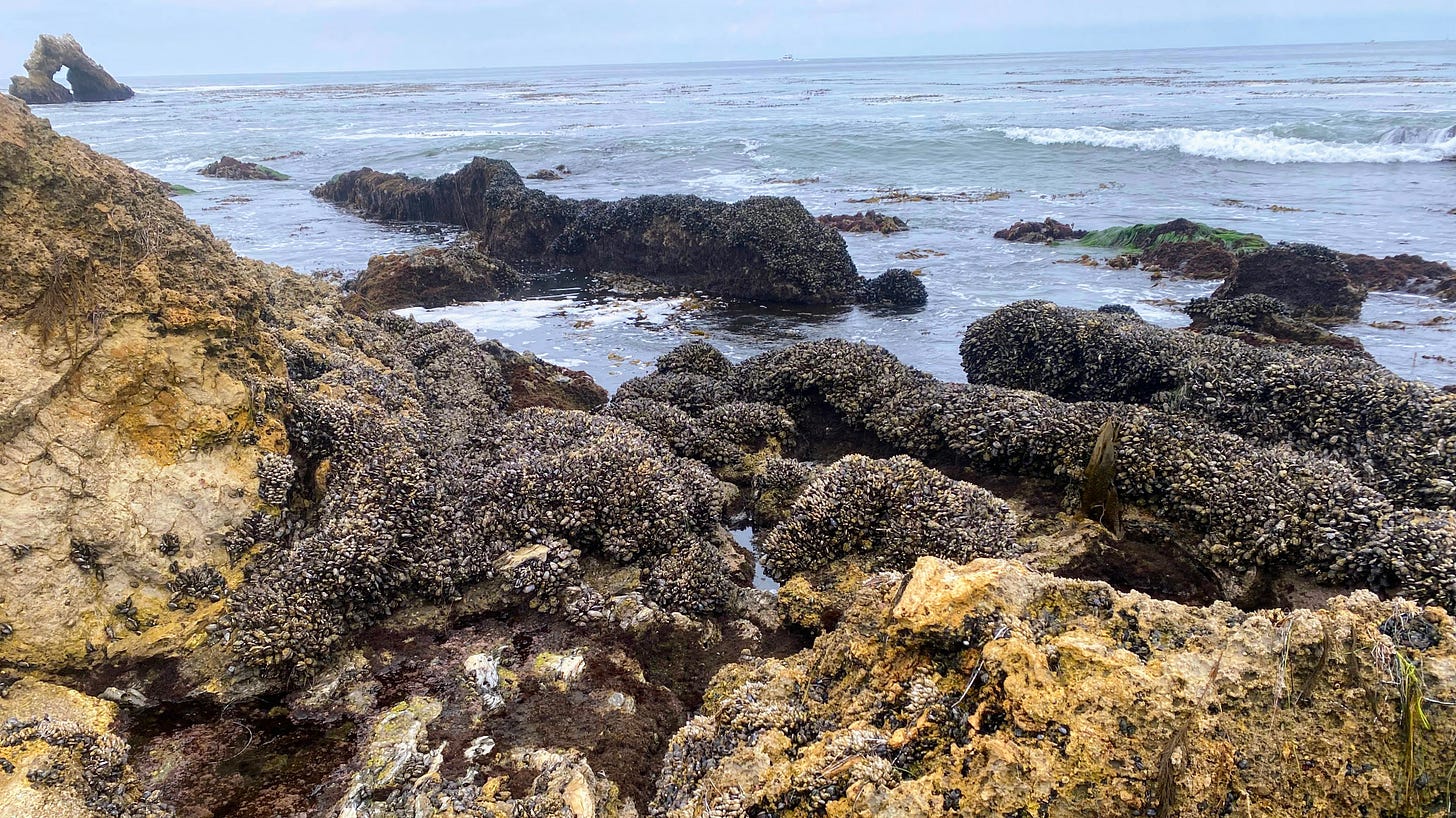Context and the Embedded Narrative
The complex poetry of life in motion weaves our dreams through the landscape reflecting back to us who we are, where we've been, and what we've forgotten we knew.
Once again, I have withheld a great deal and not taken the time to write down my thoughts or convey the evolution thereof. After a quarter century of learning about plants, I have gone through stages of learning and acceptance. These experiences have led me to the point of being able to share with you what I have to share today, but there have been a great many significant way points along this path, only some of which I’ll be able to mention or address in this relatively short post.
Everyone alive today, within the Western world, has been educated or brought up within the confines of a belief system that stems, in significant part, from the Rockefeller era of the late 19th century. During this time, radical, new beliefs were being constructed around a system of medicine, or healing, as it were, that would conceptually begin to shift the common person’s mind from one of, perhaps, awe over the mystery of the innate functioning of the human body (with all myriad concomitant beliefs in the supernatural associations and influences) gradually, over generations, to one of assuredness in something which they had never really seen or experienced but had only ever been told, or immersed in (a sea of belief/vers).
This paradigm of thought is too often taken for granted as “fact” or the “evident truth” arrived at through “scientific reasoning” or the “scientific method” and proven out, thusly, so as to make any further inquiry into these subjects a feeble-minded endeavor or that of an ignorant non-believer only seeking to rock the boat for attention or the personal satisfaction derived from causing disruption and the dismay of others more clear-headed and clear-sighted in the truth of the matter before them.
This unfortunate perspective has nonetheless interrupted a great deal of honest inquiry, truly scientific methodology, and has paradoxically removed from the conversation (conveniently) any talk of intuition and the supreme intelligence of the heart (which reaches beyond rationality and reason, yet is more “true”, in truth, than those “truths” can attain.
Thus, the discussion around illness and disease has been quarantined, in a sense, hijacked by a perspective that only allows a limited discourse (“limited hangout”) in which all matters defer back to the implicit notions expressed by the language used and the inherent paradigms of thought ensconced within.
In other words, a closed loop system.
For those who have experienced significant trauma and awakened to the network of thoughts, beliefs and behaviors that have manifested as a consequence of the traumatic experience, the internal response to the experience, and/or any modifications to self that were taken on as a means to cope with the utter terror, dismay or despair that one was experiencing at the height of the traumatic scenario, the awakening may serve as a dismantling of all the above as it pertains to the trauma experience itself and its ramifications on the Self while revealing the True Self beneath it all.
In other words, to feel the pain is to begin to see the truth, which is to begin to see the lies (in compensation) that served to cover up the truth.
Dismantling of the ego’s grasp (not in a strictly spiritual achievement sense, but in the sense of recovering one’s integrity) is nonlinear, and can feel like an endless hall of mirrors (see Psyche’s descent to the Underworld).
The Hall of Mirrors may just be a creation of the individual in order to prevent seeing, thus feeling, the painful residue of the traumatic experience/s. A strength utilized for one’s own protection when necessary protection wasn’t present. A strength that will soon wear out its value but perhaps not its relevance… until the pain is encountered again, and felt.
The space in between all of these obstacles, insights, pain and expression of Self is where herbs connect with us, by their Nature. Their intent, I have come to witness and understand, is to aid and assist us in moving closer to our own true Nature which may very well necessitate moving through a great deal of pain and releasing unauthentic behaviors, ideas, and beliefs about ourselves.
Man of the Forest
Long ago, there lived a man in the forest. It was a deep, dark forest. Oak trees, yew, streams, badger, deer, wolves, probably even some bears. The man was reared in this forest by a mother and a father, a grandmother, grandfather, even a set of foster parents when he was the right age to leave the home and receive their tutelage.
He knew himself by his thoughts, by the reflections of the expressions of those around him, including all life forms, the seen and unseen. Although his mind could travel great distances, to the past, even specific moments, scents, feelings, images, he would find himself once again in his home, by the hearth, stoking his pipe, pondering the mysteries of the world.
He learned, was taught early on, that his mind was to be at his command should he wish to live a life of peace and tranquility and to enjoy the boundless beauty that surrounds him. He learned that not only did things move before him, in sight, but also out of his clear sight and that within him moved a universe of feelings, thoughts, memories and creative inspiration that it was only his to do what he felt and knew within.
This man also knew, keenly, that he was not alone amidst this internal existence, but existed as both an extension of and association to the life forms, seen and unseen, all around him.
Thus, a great deal of influences may affect his person, his thoughts, and the relatively small world around him. And he took to daily practices, monthly practices, seasonal practices to ensure he would not lose his way to undue influences that might see him go astray, become ill, or lose his connection to himself.
In this way he related to all the life around him, engaging in myriad exchanges that enriched his daily life, and others might say, by extension, their lives as well. He was a grateful man, humble yet confident in himself to do what he must. And in that way carried a lightness with him that might be shared with the most casual stranger or his most intimate loved one.
This man knew his place in the world, however small, and knew that he set the stage for his experiences in this life within a benevolent network that often enough rewarded the self-assertion to actualize one’s dreams, through diligent work, and to be at the service of his fellow kinfolk.
Lengua de Vaca
Doña Juanita and I continued our walk through the village and as we approached a small vacant lot that appeared to have had animals penned up not long ago, yet still verdant with a variety of plants, she stopped and pointed out a long leaf emerging from the ground which came to a point. “Lengua de vaca” she told me. Continuing in Spanish, she informed me that if I were to eat this leaf every day then I wouldn’t become ill. She instructed me in how I may prepare it and how enjoyable it could be. I listened and trusted her words. I did not know “why” nor did I need to know. My paradigm of thought was being broken down, slowly and gradually, and for a moment, I was in acceptance of this.
I still wanted to memorize all that I was taking in. There were plant specimens wrapped in plastic with names in Spanish and the local dialect, along with simple uses. I felt like I was opening a door into a world that was vast, yet somehow familiar to me. I was re-learning something I had already once known.
Antiviral Herbs
‘Antiviral herbs are not really antiviral’, I was told by my herbalist instructor, ‘because there is no life in a virus so how could an herb be against something that really isn’t there?’.
This thought made sense to me. I could appreciate the concept of there being “no life” in this piece of genetic material that possesses no physiological functioning. So how could one “kill” something that essentially is not alive? Unfortunately, my curiosity ended there (as did everyone around me, including the instructor). I still felt my thoughts and questions to be far less relevant than the “established knowledge base” that I was seeking to catch up with so that I could one day “be on par” with those who are far more educated than I.
Bioregional Herbalism
Throughout the years, my approach to bioregional herbalism has been built by experiences, many intimate experiences with plants, the landscape, other people, and myself alone with the plants and the landscape.
These experiences have fed me layers of information which at first supported the theoretical knowledge I gained from books about herbalism (see: Chinese Medicine), then began to expand into a life of their own. This was my graduation into the role of Student of the Land.
As a Student of the Land I learned that the Man of the Forest was not a fictitious character only alive in fairy tales, myths and legends but a real, live legitimate archetype of human experience, my direct ancestor, and a latent being within myself.
With him at my back, I proceeded, curiously, as a Student of the Land. The plants taught (and continue to teach) me many lessons about my Nature and their Nature.
One’s Nature is the Truth of One’s Being-ness. This Truth is, of course, not absolute. But it is a spectrum of latent potential that may be expressed. Thought and action expressed through the will of the individual cross and merge with that of all other lifeforms, good, bad, and indifferent.
As this Nature we experience is inherently fluid, one cannot reside in any place of complete understanding (not in the material realm), nor in any state of very specific understanding without it quickly becoming irrelevant, in context.
In this reality, context is everything.
Language imbues our speech with meaning, but what meaning? What is implied by concepts and what is assumed? If we operate from a place of unchecked assumptions, our best intended expressions may be off the mark as soon as the arrow leaves the bow.
Plants have taught me this. The Landscape has taught me this. Life has taught me this, and it illustrates it and expresses it in real time whenever I care to pay enough attention to it.
Our minds bring the context, but can only stretch so far while still rooted in our awareness of Self.
Many years ago now, I sat down upon a steep, sandy north-facing desert hillside before a small estafiate plant (Artemisia ludoviciana). I took a deep breath, no doubt, and I opened myself up before this plant. I opened my heart to this plant. It immediately showed me, in some way, how it energetically moved or extended itself towards my liver, and that it “goes straight to the liver”.
I have grown to understand more of what this means as I have observed this plant over the years. I’ve observed how it manifests in others who ingest it mindfully, or who sit with it, mindfully, without ingesting anything made from the plant.
It’s Nature was immediately revealed to me, but what this means has been slowly revealing itself to me over time. I have grown in appreciation of what this means, through context, over time.
There are layers relevant to myself, and layers perceived and expressed by others. These layers have been shown to be overlapping, building out a pattern of a Nature that is always expressing itself in relation to perceivable and, perhaps, non-perceivable factors within a broader scenario.
This is how I would like to begin any discussion of what an herb is “good for” or why an herb “doesn’t work” in a particular situation when “it should.”
And it’s how I’d wish to begin building the foundation of a thesis about what I see in the world around me or the story I perceive from an individual, which, undoubtedly, will be reflected within my own internal narrative, good, bad, or indifferent, which is nonetheless inextricable as we are still part of the same web of life.








beautiful words brotha!